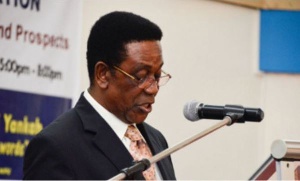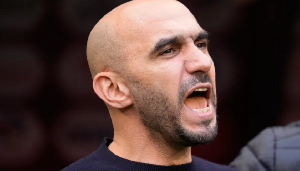Professor Kwesi Yankah, the Minister of State for Tertiary Education, has decried the relegation of African arts and culture to the background by governments busily engaged in economic wars and allowing fortunes of the traditional arts to plunge.
The resilience of African arts with the public sphere appeared not to have kept pace with the times while traditional and modern arts have suffered attrition from colonisation and globalisation, he added.
“African governments, currently fighting economic wars, have partly scarified pubic arts, allowing its fortunes to plummet along with economies,” he said on Wednesday at the opening of the Arts Council of the African Studies Association (ACASA) 17th triennial symposium.
The ACASA symposium is being hosted by University of Ghana and the first to be held in Africa since it was established a number of years ago.
The organisation exists to facilitate communication among scholars, teachers, students, artists, museum specialists, collectors, and all others interested in the arts of Africa and the African Diaspora.
It seeks to promote greater understanding of African material and expressive culture in all its many forms, and encourages contact and collaboration with African and Diaspora artists and scholars.
Prof Yankah noted that state festivals of arts and culture had waned in “steam and frequency” while patronage as a subject was suffering in high school curriculum. “Even though national museums abound, national art galleries are uncommon in sub Saharan Africa. Visual art, sculptures and monuments in public spaces are mere shadows of realities in our great artistic heritage,” he said.
He said: “We have a long way to go in telling our great story, narrating our history with monuments that are colossal enough to befit titans. “We have a big story which we have only succeeded in mumbling with diminutive sculptures in public space, flattening the sweet in our epic narrative. For this we are sorry. “We miss the giant and majestic public sculpture and monuments, the imposing historical landmarks, that otherwise inform and lubricate the consumption of proud histories. “In the absence of a certified national script, we seem to be too busily interrogating, more than representing our glorious past.”
Prof Yankah, however, said opportunities abound as the classroom could be the starting point to nurture the creative narrative arts in the early life of children by making it core component of the school curriculum.
President of ACASA Dr Sylvia Fomi described the triennial symposium as historic and an opportunity for the over 400 participants to connect and network.
General News of Wednesday, 9 August 2017
Source: GNA
Africa fighting economic wars – Prof Yankah
Entertainment












